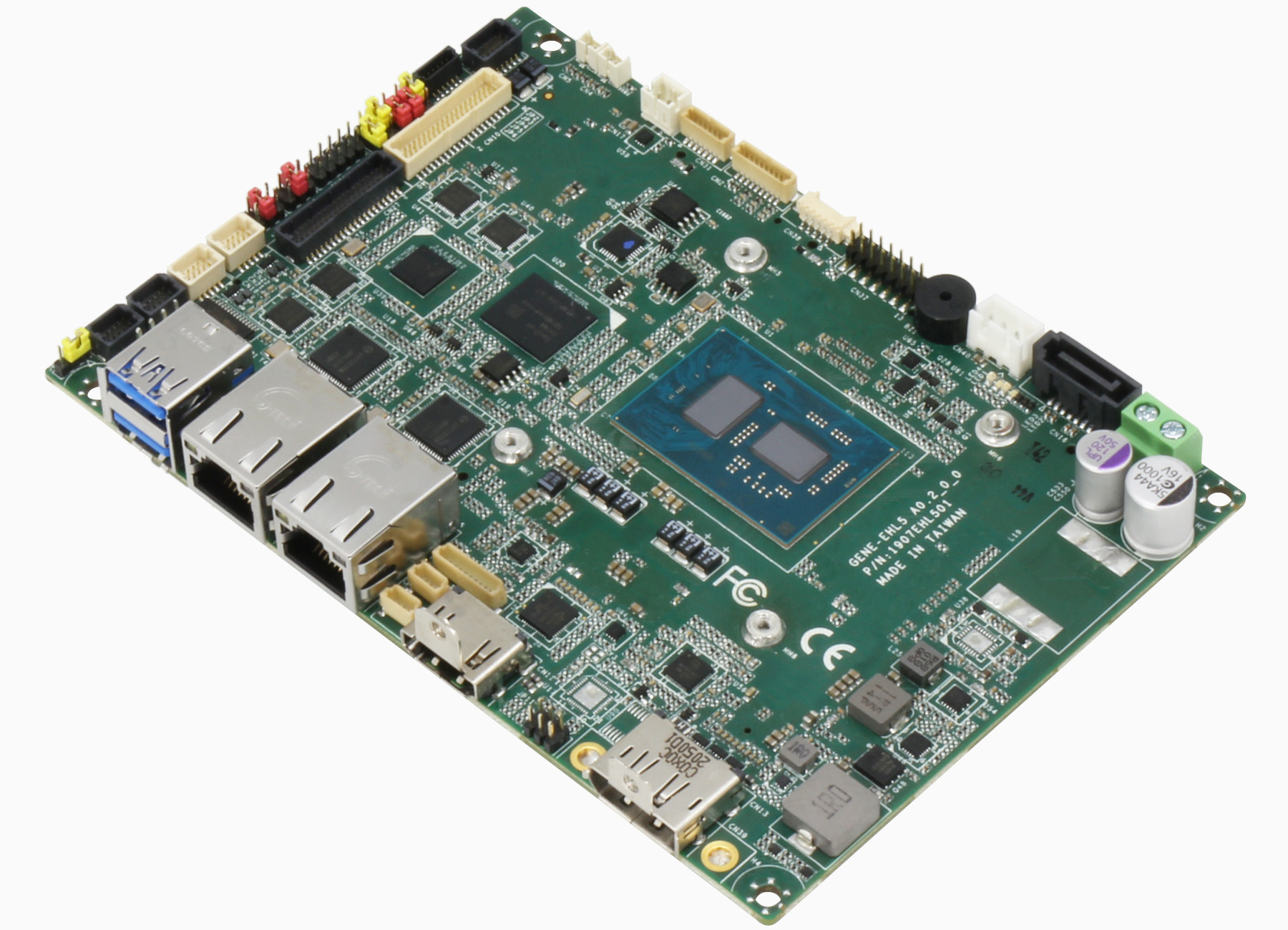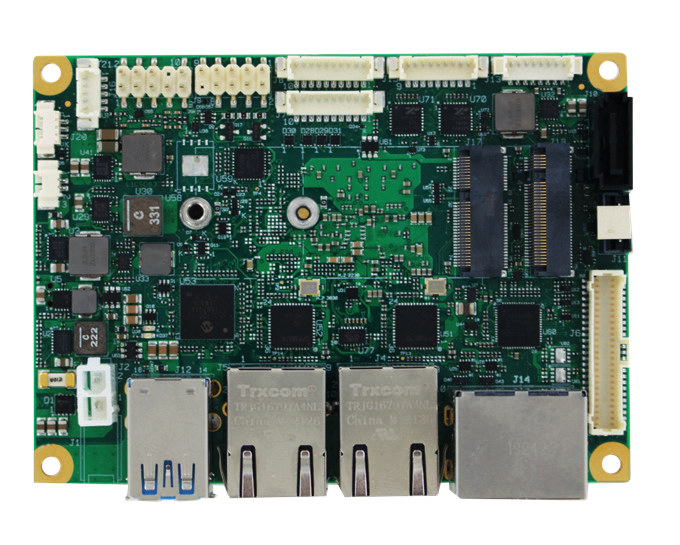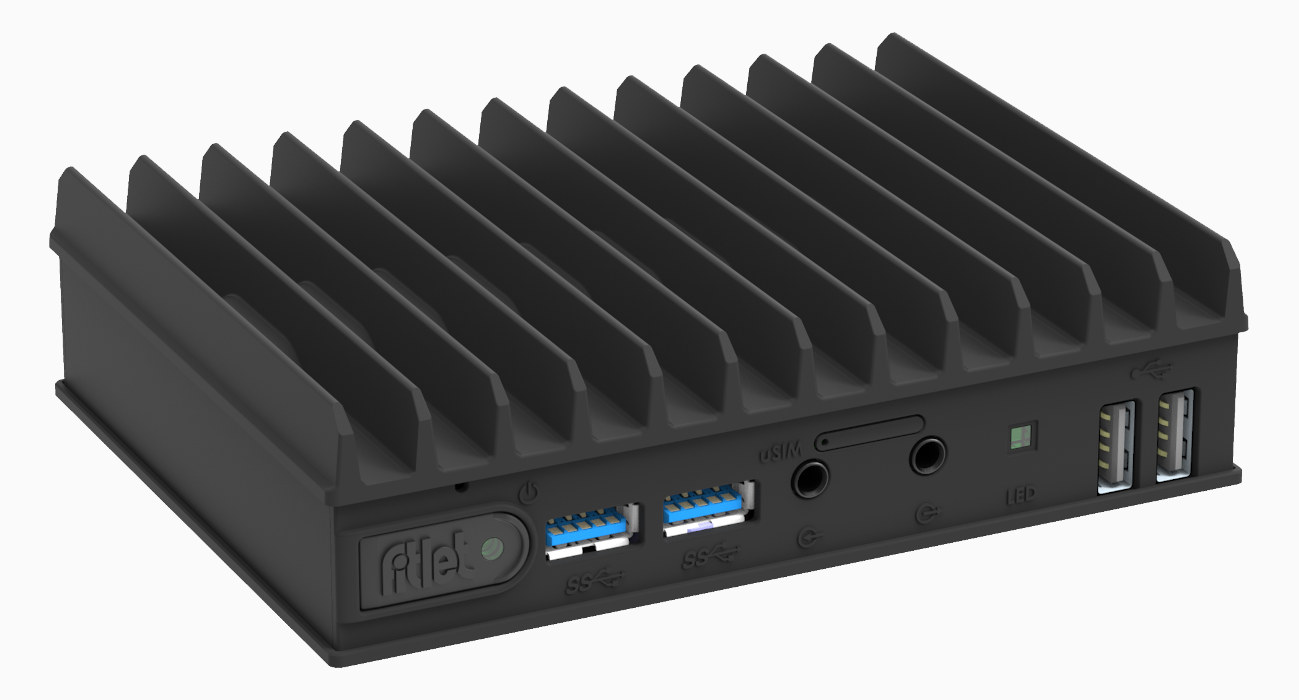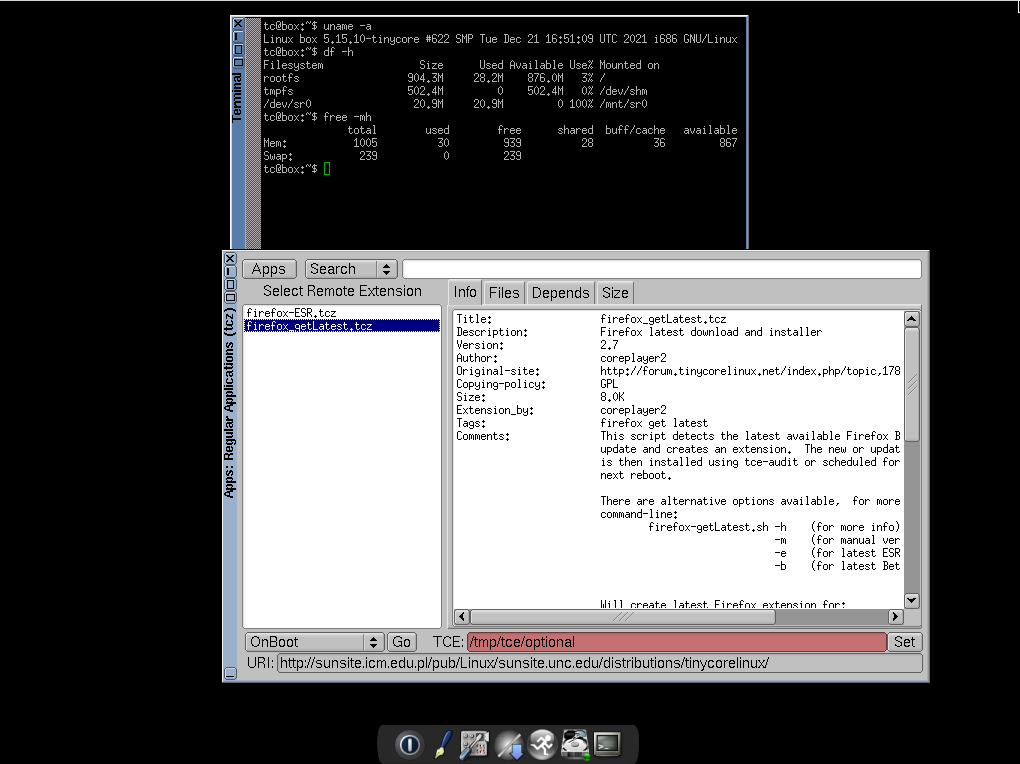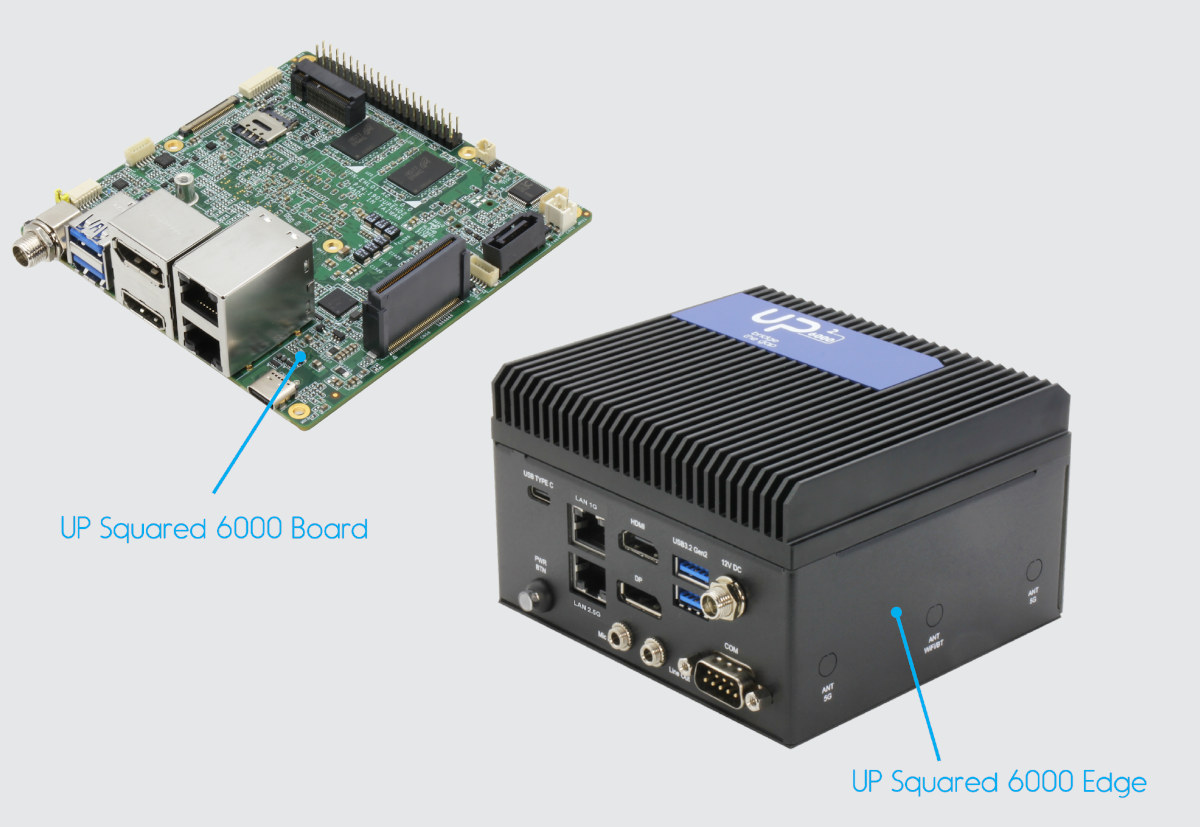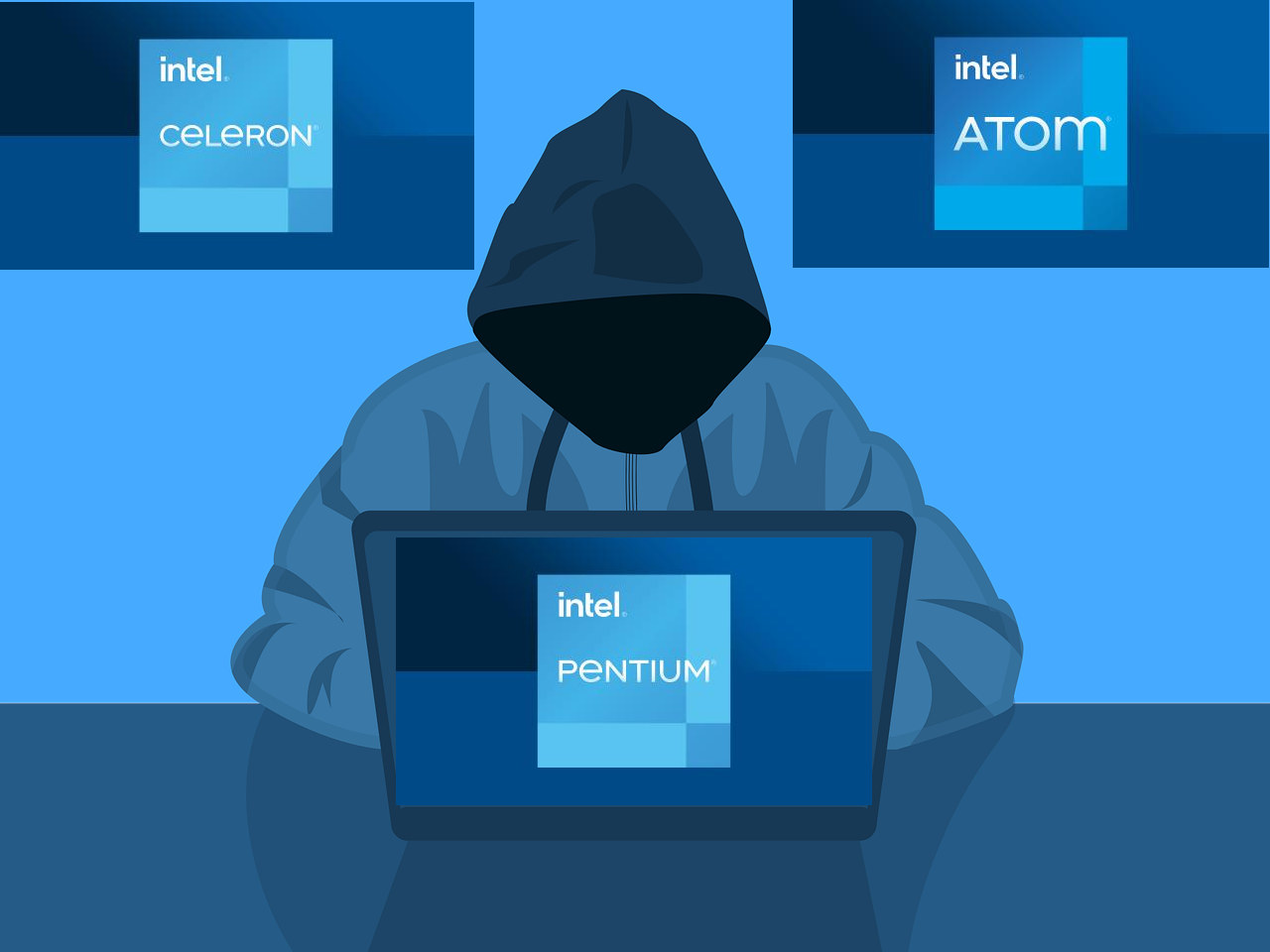Lakka 4.0 is the latest release of the game emulator based on LibreELEC 10.0.2 and RetroArch 1.10.1 frontend GUI for LibRetro game emulators cores. While Lakka was initially designed for Raspberry Pi boards in a way similar to RetroPie, it also works just fine on many other Arm platforms and PCs. Main changes to Lakka 4.0 compared to version 3.7: Build system based on LibreELEC 10.0.2 RetroArch updated to 1.10.1 Cores updated to their most recent versions superbroswar: added new libretro core sameduck: added new libretro core Mesa updated to 22.0.0 Mainline kernel updated to 5.10.103 (PC, Amlogic, Allwinner, NXP) Raspberry kernel updated to 5.10.95 Most arm devices switched to aarch64 Rockchip RK3288, RK3328 and RK3399 switched to mainline kernel 5.10.76 Added support for additional Allwinner and Amlogic devices (not tested on our side, as we do not own many of these devices) Nintendo Switch: complete rewrite of the port […]
3.5-inch Elkhart Lake SBC offers dual GbE, 4x M.2 sockets, 5G cellular support
AAEON GENE-EHL5 is a 3.5-inch Subcompact board based on Intel Atom x6000E Series, Pentium, and Celeron “Elkhart Lake” processors with four M.2 expansion slots for wireless connectivity (5G, WiFi, etc…) and NVMe modules, as well as two Gigabit Ethernet ports. The single board computer comes with one DDR4 SODIMM slot for up to 32GB IBECC memory, supports SATA and NVME storage, offers DisplayPort and HDMI, and eDP/LVDS video interface, as well as wide DC input from 9-36V, although there’s also a cost-down option for 12V DC input only. AAEON GENE-EHL5 specifications: Elkhart Lake SoC (one or the other) with Intel UHD graphics Intel Atom x6425RE quad-core processor @ 1.90 GHz; 12W TDP Intel Atom x6425E quad-core processor @ 2.00 GHz / 3.00 GHz (Turbo); 12W TDP Intel Atom x6211E dual-core processor @ 1.30 GHz / 3.00 GHz; 6W TDP Intel Pentium J6426 quad-core processor @ 2.00 GHz / 3.00 GHz; […]
ICARUS Elkhart Lake Pico-ITX board targets IoT, AIoT, and computer vision applications
SECO ICARUS is a Pico-ITX single board computer based on Intel Atom x6000E, Celeron, and Pentium Elkhart Lake processor that’s designed for edge IoT, AIoT, and computer vision applications. The SBC ships with up to 16GB DDR4 IBECC (in-band error-correcting code) memory, eMMC flash and/or SATA storage, supports up to three independent displays, features two Gigabit Ethernet ports with TSN support, M.2 sockets for WiFi/Bluetooth and cellular connectivity, several USB ports, serial ports, and other I/O interfaces. ICARUS specifications: Elkhart Lake SoC (one or the other) with Intel Gen11 UHD Graphics Intel Celeron J6413 quad-core processor @ 1.8GHz (3GHz Turbo); 10W TDP Intel Celeron N6211 dual-core processor @ 1.2GHz (3GHz Turbo); 6.5W TDP Intel Pentium J6426 quad-core processor @ 2.0GHz (3GHz Turbo); 10W TDP Intel Pentium N6415 quad-core processor @ 1.2GHz (3GHz Turbo); 6.5W TDP Intel Atom x6211E dual-core processor @ 1.3GHz (3GHz Turbo); 6W TDP w/ IBECC and IHS […]
Fitlet3 is a compact, fanless Elkhart Lake mini PC for IoT and industrial applications
Fitlet3 fanless mini PC based on a choice of three Atom or Celeron Elkhart Lake processors is an upgrade to the Compulab Fitlet2 mini PC introduced in 2017 with Apollo Lake processors. Designed to be used as a fanless industrial mini PC or an IoT gateway, Fitlet3 comes with up to 32GB RAM, supports SATA and NVMe storage, offers two 4K video outputs, up to four Gigabit Ethernet ports, optional WiFi 6E, Bluetooth 5.2, and/or 4G/5G cellular connectivity, as well as a wide range 7V to 42V power input. Fitlet3 specifications: Elkhart Lake SoC (one or the other) Intel Atom x6425E quad-core processor @ 2.0 GHz / 3.0 GHz (Boost frequency); TDP: 12 W Intel Celeron J6412 quad-core processor @ 2.0 GHz/ 2.6 GHz; TDP: 10 W Intel Atom x6211E dual-core processor @ 1.3 GHz / 3.0 GHz ; TDP: 6 W System Memory – Up to 32 GB DDR4 […]
Tiny Core Linux 13.0 released for older or lower-end x86 hardware
Tiny Core Linux 13.0 has just been released for 32-bit and 64-bit x86 systems with a recent Linux 5.15.10 kernel, and various upgrades to the packages. Tiny Core Linux is a lightweight (~22MB ISO) Linux distribution with an FLTK (Fast Light Toolkit)/FLWM (Fast Light Windows Manager) desktop and based on the Core Project that integrates a recent Linux kernel, vmlinuz, and a root filesystem with low footprint libraries such as busybox. It’s mostly interesting for older or low-end hardware that may be slow and/or unusable with more common Linux distributions like Ubuntu or Debian. Tiny Core Linux 13.0 main changes: kernel updated to 5.15.10 glibc updated to 2.34 gcc updated to 11.2.0 binutils updated to 2.37 e2fsprogs base libs/apps updated to 1.46.4 util-linux base libs/apps updated to 2.37.2 busybox updated to 1.34.1 50-udev-default.rules: add media permissions select: require that “break” used in awk scripts filetool.sh: prevent gratuitous change to .filetool.lst’s […]
The Eclipse Oniro Project aims to deliver consumer & IoT software that works across multiple platforms
Several of the embedded talks at FOSDEM 2022 mention the “Eclipse Oniro Project”. I had never heard about that project from the Eclipse Foundation, so let’s see how they describe it: Oniro is an Eclipse Foundation project focused on the development of a distributed open source operating system for consumer devices, regardless of the brand, model, make. Oniro is a compatible implementation for the global market of OpenHarmony, an open source operating system specified and hosted by the OpenAtom Foundation. Designed with modularity in mind, Oniro offers greater levels of flexibility and application portability across the broad spectrum of consumer and IoT devices — from tiny embedded sensors and actuators, to feature rich smart appliances and mobile companions. As a distributed and reusable collection of open source building blocks, Oniro enables compatibility with other open source technologies and ecosystems. Through close collaboration with projects and foundations such as OpenHarmony from […]
UP Squared 6000 – AAEON introduces Elkhart Lake SBC and Edge computer
AAEON has unveiled a new single board computer and edge system from the “UP bridge the gap” family with UP Squared 6000 equipped with Intel Atom x6000, Celeron, or Pentium Elkhart Lake processor, up to 8GB DDR4, 64GB eMMC flash, two Gigabit Ethernet ports, DisplayPort 1.2, HDMI 2.0b, eDP video interfaces, SATA and M.2 storage, and more. The UP Squared 6000 is available in four different SKUs with notably an industrial SKU powered by the Intel Atom x6425RE optimized for automation, robotics, and industrial applications with support for Intel Time Coordinated Computing (TCC), Time-Sensitive Networking (TSN) via its 2.5GbE port. UP Squared 6000 specifications: Elkhart Lake SoC (one of the other) Intel Celeron N6210 dual-core processor @ 1.2 GHz / 2.6 GHz with 16EU Intel UHD graphics; 6.5W TDP Intel Pentium J6426 quad-core processor @ 1.8GHz / 3GHz with 32EU Intel UHD Graphics; 10W TDP Intel Atom x6413E quad-core processor […]
Hardware security flaw impacts Intel Apollo Lake & Gemini Lake processors
A few years go the Spectre and Meltdown hardware security vulnerabilities impacted a wide range of processors from Intel, AMD, Arm, and others. But a newly discovered hardware security flaw impacts specifically the Atom, Celeron, and Pentium from the Apollo Lake, Gemini Lake, Denverton … low-power processors we often feature on CNX Software. Researchers have managed to activate test or debug logic at runtime for some low-power Intel processors, which they could use to escalate privilege, retrieve the “fuse encryption key” aka “chipset key fuse” unique to each processor, and access encrypted data. Most people do not need to panic though, as the hack would require physical access to the machine, and Intel says it is releasing firmware updates to mitigate the vulnerability. High-value targets should care though as the hack only takes 10 minutes, and if a laptop is stolen or lost, a skilled attacker should be able to […]



